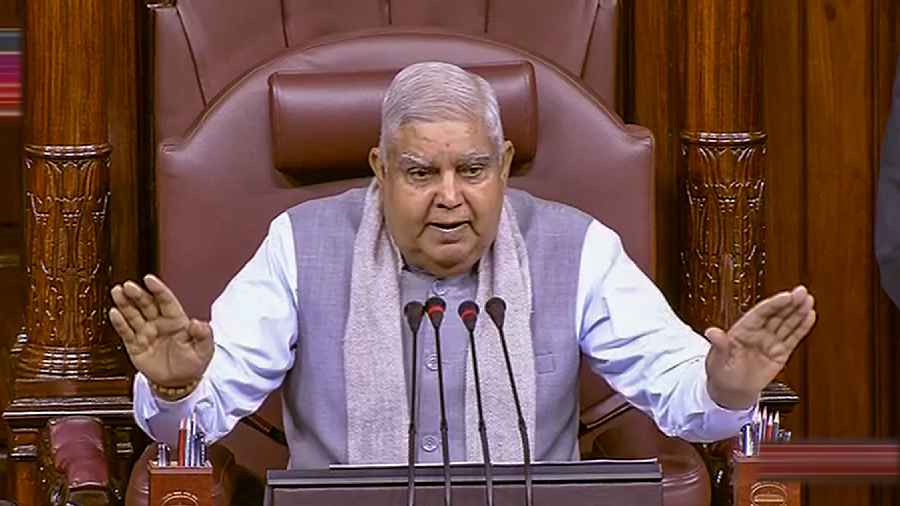Rajya Sabha Chairman Jagdeep Dhankhar on Thursday termed "inappropriate" the remarks made by UPA chairperson Sonia Gandhi that the government is seeking to "deligitimise the judiciary" and urged political leaders not to subject high constitutional offices to partisan stances.
Speaking in the Upper House of Parliament, the chairman said Gandhi's statement is far distanced from his reflections as delegitimising the judiciary is beyond his contemplation.
"The observations are severely inappropriate, indicating a lack of faith in democracy, making this exceptional response unavoidable," he said.
"The statement imparted by the Hon'ble chairperson of the UPA is far distanced from my reflections. Delegitimising the judiciary is beyond my contemplation. It is a pillar of democracy. I would urge and expect leaders across the political spectrum to bear in mind not to subject high constitutional offices to partisan stances," Dhankhar said.
Gandhi, who is also the chairperson of the Congress Parliamentary Party, accused the Centre on Wednesday of making a calculated attempt to "delegitimise" the judiciary, describing it as a "troubling new development".
She also accused the government of making an effort to reduce the standing of the judiciary in the eyes of the public.
"A troubling new development is the calculated attempt underway to delegitimise the judiciary. Ministers and even a high constitutional authority have been enlisted to making speeches attacking the judiciary on various grounds.
"It is quite clear that this is not an effort to provide reasonable suggestions for improvement. Rather, it is an effort to reduce the standing of the judiciary in the eyes of the public," the former Congress chief alleged.
Her remarks came in the wake of recent run-ins between the government and the judiciary over several issues, including the appointment of judges to higher courts.
Dhankhar criticised the judiciary earlier this month for scrapping the National Judicial Appointment Commission (NJAC) Bill related to the appointment procedure for judges in higher courts and termed it an instance of "severe compromise of parliamentary sovereignty".











